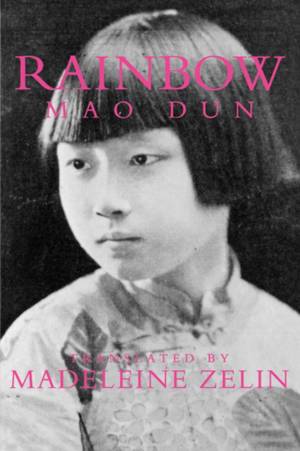
- Afhalen na 1 uur in een winkel met voorraad
- Gratis thuislevering in België vanaf € 30
- Ruim aanbod met 7 miljoen producten
- Afhalen na 1 uur in een winkel met voorraad
- Gratis thuislevering in België vanaf € 30
- Ruim aanbod met 7 miljoen producten
Zoeken
Omschrijving
With this translation of the 1929 novel Rainbow(Hong), one of China's most influential works of fiction is at last available in English.
Rainbow chronicles the political and social disruptions in China during the early years of the twentieth century. Inspired by the iconoclasm of the "May Fourth Movement," the heroine, Mei, embarks on a journey that takes her from the limitations of the traditional family to a discovery of the new, "modern" values of individualism, sexual equality, and political responsibility. The novel moves with Mei from the conservative world of China's interior provinces down the Yangtze River to Shanghai, where she discovers the turbulent political environment of China's most modern city.
Mao Dun writes with the conviction of one who has lived through the events he is describing. Rainbow provides a moving introduction to the contradictions inherent in the simultaneous quest for personal freedom and national strengthening. Vividly evocative of the period in which it was written, it is equally relevant to the China of today.
Rainbow chronicles the political and social disruptions in China during the early years of the twentieth century. Inspired by the iconoclasm of the "May Fourth Movement," the heroine, Mei, embarks on a journey that takes her from the limitations of the traditional family to a discovery of the new, "modern" values of individualism, sexual equality, and political responsibility. The novel moves with Mei from the conservative world of China's interior provinces down the Yangtze River to Shanghai, where she discovers the turbulent political environment of China's most modern city.
Mao Dun writes with the conviction of one who has lived through the events he is describing. Rainbow provides a moving introduction to the contradictions inherent in the simultaneous quest for personal freedom and national strengthening. Vividly evocative of the period in which it was written, it is equally relevant to the China of today.
Specificaties
Betrokkenen
- Auteur(s):
- Vertaler(s):
- Uitgeverij:
Inhoud
- Aantal bladzijden:
- 255
- Taal:
- Engels
- Reeks:
- Reeksnummer:
- nr. 4
Eigenschappen
- Productcode (EAN):
- 9780520073289
- Verschijningsdatum:
- 29/05/1992
- Uitvoering:
- Paperback
- Formaat:
- Trade paperback (VS)
- Afmetingen:
- 153 mm x 227 mm
- Gewicht:
- 385 g

Alleen bij Standaard Boekhandel
+ 108 punten op je klantenkaart van Standaard Boekhandel
Beoordelingen
We publiceren alleen reviews die voldoen aan de voorwaarden voor reviews. Bekijk onze voorwaarden voor reviews.











